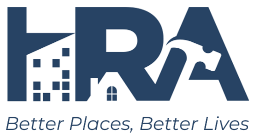Homeless & Special Needs Housing
If You Are Currently Homeless
Call For Assessment
If you are currently experiencing homelessness, dial 2-1-1, dial toll-free (855) 567-5341, or text your zip code to 898211 for information, screening, and referral.
This one call or access site visit will help you begin to access services and supports to address your current situation. Many of the programs available use the US Department of Housing and Urban Development’s definition of homelessness –“sleeping in a place not meant for human habitation; staying in an emergency shelter; staying in transitional housing but came from the streets or an emergency shelter; must meet homeless qualification at the time of application.”
Onsite Assessment
Individuals and/or households may also visit local access sites for assessment:
Carlisle CARES
50 West Penn Street
Carlisle, PA 17013
Perry Housing Partnership
42 W Main Street
New Bloomfield, PA 17068
Case Management
Special needs case managers provide assistance in locating and obtaining housing, as well as ongoing support to ensure clients are able to retain that housing and meet their monthly financial obligations—for example, assisting in preparing and monitoring a household budget. Case managers assist in making referrals for health care, childcare and other needed services.
Applicants must meet income guidelines and other eligibility requirements. Participants are required to pay a percentage of their monthly income toward rent and utilities and meet with case managers on a regular basis.
The Authority has a limited number of housing units for the homeless and those with special needs at properties it manages. In addition, other housing options are provided through community partners and the private sector. Case managers work closely with clients and these partners to coordinate services.
Complete Intake
The first step in obtaining rental assistance through the Homeless and Special Needs Housing Programs is to do one of the following:
- dial 2-1-1
- dial toll-free (855) 567-5341, or
- text your zip code to 898211 for information, screening and referral.
Individuals and/or households may also visit a local access site for assessment.
If eligible, applicants will be placed on the Coordinated Entry List.
Wait For Your Name To Come Up On The List
When there is an opening in a Homeless and Special Needs Housing program, the first eligible applicant on the list will be contacted by staff and begin the application process.
Complete The Certification Process
You will meet with your assigned caseworker and be certified for participation in the program. ‘Certified’ means you meet all the eligibility requirements and can now begin to look for housing. During this meeting, the caseworker will explain what kind of housing you should be looking for and how much you can afford to spend on that housing.
Housing Selection
After being certified, you will begin your housing search. When you find a house or apartment that you like, you can contact your caseworker to begin the process of leasing the unit.
Housing Inspection
All units in this program must be inspected to ensure they meet the U.S. Department of Housing and Urban Development’s housing quality standards.
Negotiate Your Lease
After the unit has passed inspection, your caseworker will assist in negotiating the terms of the lease and a move-in date. You should not sign a lease until your caseworker tells you to!
Sign Your Lease
You will then meet with your caseworker again to sign the paperwork required by the Housing Authority. Your caseworker will tell you how much of the rent you must pay, where to pay the rent, etc. The caseworker will also review all of the rules and regulations to make sure you understand what you must do to keep your housing and your rental assistance. If you need assistance getting utilities transferred into your name, you should ask you caseworker for help.
Move In!
It’s your moment to move in to your new place. Be sure to honor all terms of your lease to follow expected tenant behavior.
Regular Meetings With Your Caseworker
A requirement of the Homeless and Special Needs Programs is that you meet with your caseworker on a regular basis. Your caseworker will contact you with an appointment time. If you cannot make the appointment, you should call and reschedule.

